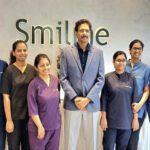New Delhi, July 31, 2020:
During travel, everyone should clean hands frequently, cough or sneeze into a bent elbow or tissue, and try to maintain a physical distance of at least one metre from others. Travelers should follow the recommendations of the travel authorities regarding policies in the airport and of the airline for the flight.
People with confirmed diagnoses of COVID-19 cases should be in isolation and not traveling. Anyone who has had contact with someone else confirmed with COVID-19 cases should be in quarantine and not travel. People aged 60 and over, and those with serious chronic illnesses or underlying health conditions should try to postpone travel, or take special precautions and wear a medical face mask continuously throughout the travel. Check the destination country for policies on what kind of tourism travel is allowed.
Essential travel is travel for emergencies and humanitarian actions (including emergency medical flights and medical evacuation). It includes essential personnel (including emergency responders and providers of public health technical support, critical personnel in transport sector such as seafarers and diplomatic officers) and repatriation to a home country.
People age 60 and over, and those with serious chronic diseases of underlying health conditions, should postpone or delay travel internationally to and from areas with community transmission, where there are many cases of COVID-19. This is because people in the high-risk group more frequently get very sick after getting the disease, with some dying of it.
If you have to travel in these circumstances, you should wear a medical mask for more protection against the virus. However, masks do not mean you are fully protected. You should also clean your hands frequently, cough or sneeze into a bent elbow or tissue, and maintain a distance of at least 1 metre from others wherever possible.
Some airplanes have cabin air filtration systems equipped with HEPA filters which can remove viruses and germs quickly, minimizing the duration of the exposure to any potential infectious materials produced by a cough or sneeze. The cabin air system is designed to operate most efficiently by delivering approximately 50 percent outside air and 50 percent filtered, recirculated air. The air supply is essentially sterile and particle-free. However, adequate ventilation is just one of the preventive measures to reduce the risk of COVID-19 transmission. Other important measures include maintaining physical distance of at least 1 meter whenever possible, frequent hand hygiene and wearing a mask. Passengers should check with the airline company and the national or local guidelines about when and where to wear a mask while flying.
You should follow the advice of your travel company. If the type of mask is not specified then people 60 years and over, and those who have underlying health conditions, should wear a medical mask while traveling. This provides greater protection from others who may have the virus.
People who feel healthy and have no symptoms can wear a fabric mask to prevent any virus they may have from spreading to others.
Remember that wearing a mask does not provide full protection. You should always combine this with frequent hand cleaning, covering a cough or sneeze with a bent elbow or tissue, and maintaining at least a 1 metre distance from others wherever possible.
healthysoch







